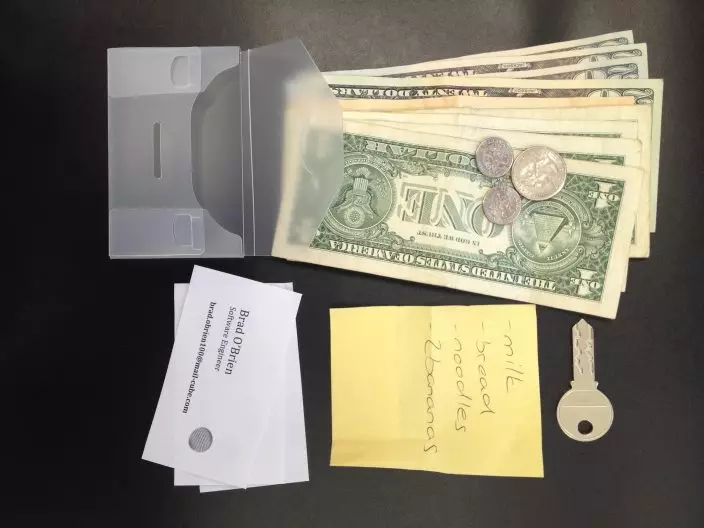A new study says people are more likely to return a lost wallet if it contains money than if it doesn't. And the more cash, the better.
Researchers planted more than 17,000 supposedly lost wallets in 40 countries, and kept track of how often somebody contacted the supposed owners. That happened more often for wallets with the equivalent of about $13 than for those without any cash.
And in an experiment within the U.S., the United Kingdom and Poland, the researchers found that contact rates were higher if the wallets contained the equivalent of about $94, rather than $13.

This undated photo provided by researchers in June 2019 shows an example of the contents of a transparent wallet used in an experiment to test how likely people are to return a lost wallet. "The evidence suggests that people tend to care about the welfare of others, and they have an aversion to seeing themselves as a thief," said Alain Cohn of the University of Michigan, one author who reported the results Thursday, June 20, 2019 in the journal Science. (Christian Zünd via AP)
Results were presented Thursday in the journal Science. Researchers think that people feel like thieves if they keep a wallet that contains money, so they're more likely to return it instead.


